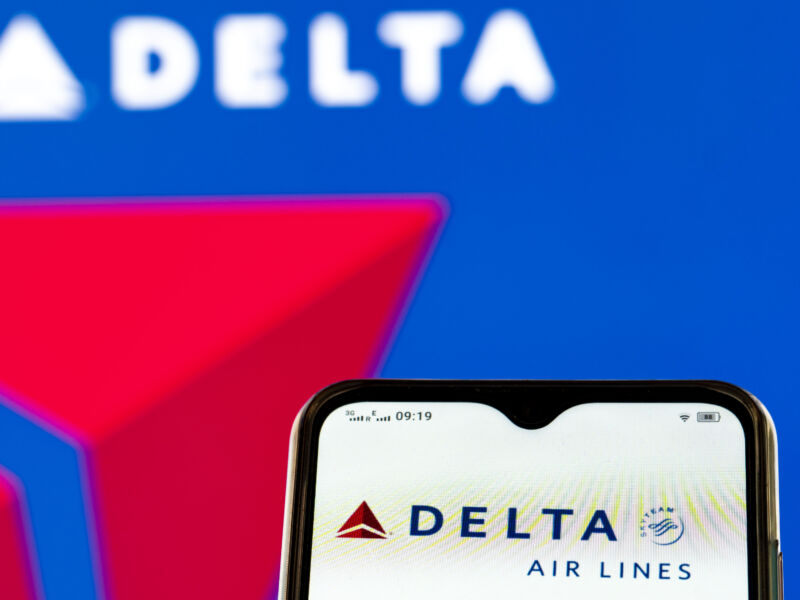
A pilot for Delta Airlines is suing his own company for $1 billion, alleging that it stole an app he created.
Captain Craig Alexander, an 11-year veteran who flies 757s, developed a messaging app called QrewLive that facilitated flight crew communications. He says he pitched the app to Delta management, who, after allegedly expressing interest, ultimately turned him down before releasing a similar app of its own.
Alexander says he worked on the project on his own time and spent $100,000 of his own money to create the app. He says he had several meetings with Delta about the app in 2015 and 2016 in which executives allegedly showed interest in acquiring the software. After 2016, though, Delta stopped communicating with Alexander about the app, and in April 2018, the airline released its own app, called Flight Family Communications.
Some of the meetings between Alexander and Delta executives may have come at the behest of CEO Ed Bastian and CIO Rahul Samant. Alexander emailed Bastian in the wake of an August 2016 power failure at Delta’s Atlanta data center, an incident that disrupted flights for five hours and cost the company more than $150 million. The pilot told the CEO that he had a “solution” that would help in the event of future outages. Bastian allegedly replied to Alexander and connected him with Samant.
“‘FFC’ is a carbon copy, knock-off of the role-based text messaging component of Craig’s proprietary QrewLive communications platform,” Alexander said in the lawsuit, which he filed in Georgia state court and which alleges theft of trade secrets. The value of his software, “based solely upon operational cost savings to Delta, conservatively exceeds $1 billion,” he said in the suit.
Delta disputes this characterization. “While we take the allegations specified in Mr. Alexander’s complaint seriously, they are not an accurate or fair description of Delta’s development of its internal crew messaging platform,” Morgan Durrant, a Delta spokesperson, told Bloomberg in a statement.
App development
To make the app, Alexander contracted with an Atlanta-based software development firm, Ars has learned, which built QrewLive atop RabbitMQ, an open-source middleware that facilitates messaging. The software was a “role-based” platform, allowing members of a particular flight crew to communicate directly with each other, similar to Slack.
Flight Family Communications does much the same thing. The app “ensures employees, or flight family members, working an assigned Delta flight have the ability to communicate directly with one another about the status of dozens of tasks and customer service items required before departure—think catering, cleaning, fueling, accounting for carry-on and checked bags, inspecting aircraft, etc.,” Delta said in a press release at the time of the app’s launch. The messaging software came amid a push by the airline to develop a number of mobile apps for crew and gate agents.
Employment law
Alexander’s chances of winning the lawsuit depend on several variables, Laurence S. Moy, deputy managing partner for Outten and Golden, told Ars. In many employment contracts, employees are considered “work for hire,” which allows employers to claim ownership of ideas or projects that employees develop outside of work, though not always. “Many employers do have very broad language for work for hire,” Moy said. “But sometimes that language still preserves the ability for an employee to own their own inventions, provided that they create them on their time and on their own dime.”
The fact that management expressed interest in Alexander’s app doesn’t necessarily change the case. “The whole question is still ‘is he entitled to have ownership by virtue of the fact that he created this on his own time without company resources?’ The second part is ‘did [management] steal it if he did create it on his own time?’ The fact that they expressed interest isn’t necessarily probative of either one of those.”
What those meetings looked like, though, is another question. Merely sharing the idea for a flight crew messaging app with Delta management may not be enough to win the lawsuit. But Alexander’s case could be stronger if he held detailed conversations or showed a prototype of the software during the meetings.
Alexander’s lawsuit reminds Moy of Robert Kearns, a Ford engineer who invented intermittent wipers on his own time. He presented a prototype to his employer in 1963, and Ford was initially interested. But after learning how Kearns’s system worked, the company decided to use another system when it introduced the feature in the 1969 Ford Galaxie. Kearns sued Ford for patent infringement, and the case dragged on for years, taking a toll on his marriage and finances. Ultimately, though, he won $10.2 million from Ford and another $18.7 million from Chrysler.
“People invent things on their kitchen tables, and they go on to become wildly successful,” Moy said. “There’s a gold rush type of appeal to the idea that a regular working person can come up with something ingenious that no one else thought of and have success with it.”
https://arstechnica.com/?p=1780885

